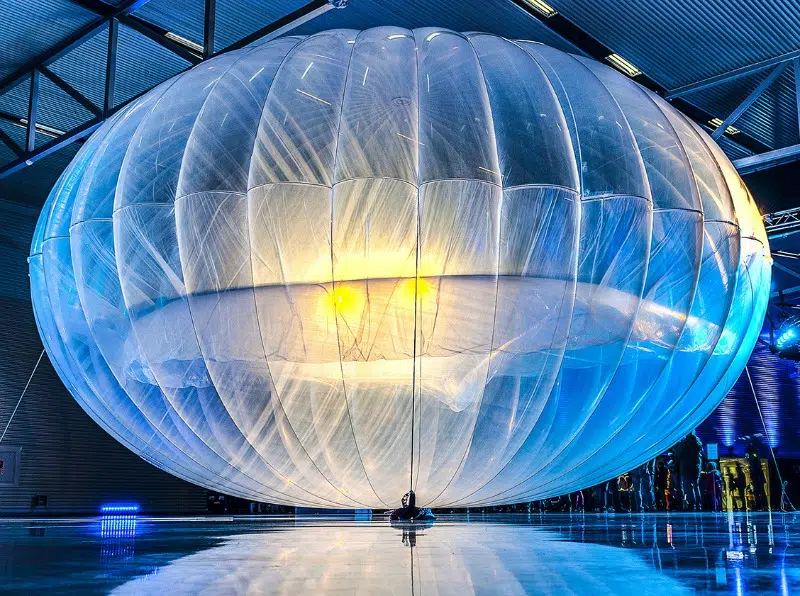Google’s sister company, Loon, recently announced their first commercial deal that will put them in partnership with Telkom Kenya to bring internet access to remote parts of Kenya. However, the specifics of the deal have not been revealed yet, and some are uneasily about the program.

Internet Heading to Dead Zone Regions
Connectivity in rural locations has been a major issue worldwide. The lack of access to a reliable internet connection is a major social and economic issue, but it’s a hard one to solve. A new program promises to bring better internet access to areas without it.
Loon’s balloons are capable of floating high in the stratosphere, about 12.4 miles above sea level. They are made to float this high to avoid air traffic, storms, and wildlife that could cause issues. The materials that make up this tennis court size balloon consist of polyurethane filled with helium and is powered by a solar panel.
The Loon Balloon is equipped with an antenna which is able to extend internet signals to create coverage and expand it to over 1,930 square miles. Since they are partnering with Telkom Kenya, they will be the source that provides the internet signal, and the Loon Ballon will spread it to the far reaches of remote areas in Kenya.
Aldo Mareuse, Chief Executive of Telkom had this to say “We will work very hard with Loon, to deliver the first commercial mobile service, as quickly as possible, using Loon’s balloon-powered Internet in Africa.”

Previous attempts to provide the needed physical infrastructure for the internet in the region have been riddled with issues. The distances have made it a challenging effort to lay fiber cables or even building the needed mobile masts to reach the area. The Loon Balloon represents a fully wireless solution to solve these issues and is the only realistic option at this time.
A huge portion of the 49 million people in Kenya have access to mobile coverage, but there are huge portions of the land mass in the country that are disconnected from any kind of internet provider. Loon can be transformational to these areas but the acceptance of the technology could be an issue as there is already an air of resistance amongst the population of Kenya.
Not Everyone is Excited About the Technology
Some believe that it could be a risk to rely on foreign commercial technology to provide something that people will find to be crucial as they are given opportunities to get online. For instance, if a small business owner takes his operations to the web using the Loon provided internet signal, the technology could suddenly become unavailable due to expiring contracts or damages to the system, that would leave the business owner in the lurch. Basically, critics are worried about creating a reliance on a system that can so easily be taken away, especially considering that the Loon Balloon isn’t a permanent structure of any kind.
Ken Banks, an expert in African connectivity, and head of the social impact at Yoti also offers that “Once these networks are in place, and dependency has reached a critical level, users are at the mercy of changes in business strategy, pricing, terms and conditions and so on. He continued that “This would perhaps be less of a problem if there’s more than one provider – you can simply switch networks – but if Loon and Telkom have monopolies in these areas, that could be a ticking time bomb.”

Not everyone is skeptical about the technology, many public figures are excited about the opportunities being brought to the region through internet access, including officials and technology experts.
Even related industries like SPI Borescopes, a leader in borescope technologies, are excited about the advancements in technology that can provide web access to otherwise blacked out areas. They note that it’s not only about social and business access but having an internet connection will provide information as well as education that residents of these areas have never had before.
Advocacy Manager at the World Wide Web Foundation, Nanjira Sambuli, noted that the UN Broadband Commission has a target of internet affordability of no more than 2% of the gross national income per 1GB of mobile data, while the nation 1GB cost in Africa is at a crippling 18% of the average monthly income.
Overall, the partnership is a positive step in the right direction. The hope is that it will be reliable and affordable. It could also be the first of other programs to head to the region.